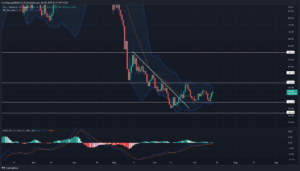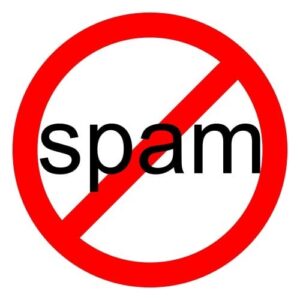
How it All Started
It started out just like any other board game success story: in Minneapolis. Josh and Adam Carlson, two cousins, had come up with a great idea for an interactive board game. They thought their idea was primed to blow the
The problem? Back in 2015, there were very few board game publishers. The big names spent most of their energy and resources on tried and true successful games, and didn’t like to deviate from formulas that made money.
Even worse than
What Makes Chip Theory Games Work?
The secret to Chip Theory’s success is multifaceted, but starts with their products and how they see themselves as a brand. Their games have a bit to do with that old advertising slogan if you don’t like what people are saying, change the conversation. Chip Theory didn’t like the American board gaming industry’s emphasis on parlor style games with a heavy hint of nostalgia.
They wanted to bring the European style of board games (based on interactive storytelling) here, and
Now, Chip Theory’s arsenal includes a wide array of stylish, and thoughtful board games, from the cult classic Too Many Bones to the
Their Secret Sauce
The other part of Chip Theory’s Success? Giving the people what they want. Yes, that applies to the games, which are funded by Kickstarter and for which Chip Theory keep their dms open for enthusiastic supporters to chime in with ideas, and likes and dislikes for the direction of the newest Chip Theory additions.
But additionally, because the minds behind Chip Theory are board game fans themselves, they know what board game lovers want: namely, content! They embody a spirit of generosity when it comes to what they make. They add Easter eggs into their games, even going so far as putting in hidden clues that can be collected and solved to unlock special game pieces, additional gameplay, and more.
They provide updates to games at minimal (or sometimes no) cost, giving their customers confidence in the idea that the relatively hefty price tags of their games ensures that they are both
This spirit of generosity takes Chip Theory beyond the board as well. They are active on Discord and in their Kickstarter comments, fostering community amongst the people who play their games. They specifically make
During the
This helped feed their business back, and local and global customer’s felt that the Chip Theory brand aligned with their personal values, and were enthusiastic about showing their support.
Chip Theory’s Favorite Ecwid Feature
It’s no surprise that Chip Theory Games turned to Ecwid for an
We loved how easy it was to stand up in a really really fast fashion right out of the box, says Chip Theory’s Director of Marketing, Josh Wielgus, who helped get Chip Theory set up with Ecwid. They also loved Ecwid’s price tag: [With] no transaction fees, Ecwid was way more affordable, especially as a small business, in comparison to many other names in ecommerce.
Their Advice to Aspiring Merchants
For aspiring merchants looking to enter a vertical where engagement and customer loyalty is key, Chip Theory has some advice: Give back to your customers whenever you can. Even if it hurts your profit margins, it’s never a bad business move.
In a time when customer loyalty can feel like a novelty, they never underestimate the power of genuine enthusiasm for who they are and what they do. Chip Theory’s guiding principle continues to be the idea of making a customer for life as opposed to making a sale.
You can find Chip Theory’s arsenal of board games available to buy here, and their current Kickstarter campaign here.
- active
- Additional
- Advertising
- advice
- All
- American
- appeal
- Arsenal
- Bit
- board
- Board Games
- Box
- business
- buy
- Campaign
- change
- Chime
- chip
- coming
- comments
- community
- confidence
- continues
- Conversation
- Crowdsourcing
- Culture
- Current
- Customer Loyalty
- Customers
- Design
- Director
- discord
- Early
- ecommerce
- Eggs
- energy
- Entertainment
- European
- Expand
- Fashion
- FAST
- Features
- Fed
- Fees
- First
- funded
- game
- Games
- gaming
- Giving
- Global
- great
- here
- How
- HTTPS
- Hungry
- idea
- Including
- Inclusivity
- industry
- interactive
- Key
- kickstarter
- local
- Loyalty
- Making
- Marketing
- Merchant
- Merchants
- money
- move
- namely
- names
- open
- Other
- pandemic
- People
- platform
- power
- price
- Produced
- Products
- Profit
- publishers
- Resources
- REST
- sale
- set
- small
- small business
- Social
- started
- storytelling
- success
- successful
- support
- surprise
- time
- transaction
- Transaction Fees
- Update
- Updates
- WHO
- Work
- year


